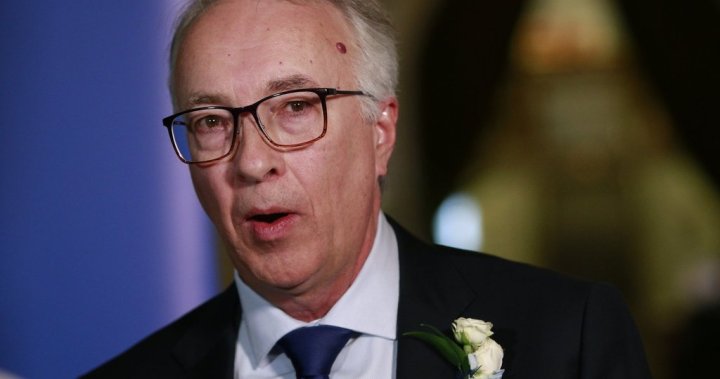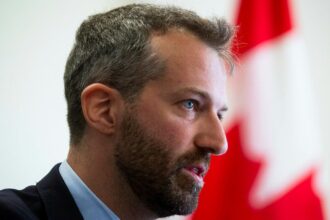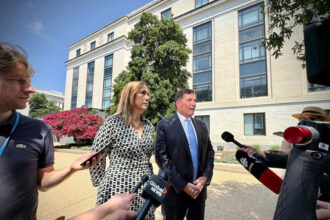In a stunning escalation of British Columbia’s already contentious political landscape, Premier David Eby has called for police intervention after BC Conservative leader John Rustad revealed his party is investigating potential blackmail attempts against its candidates. The explosive allegations have sent shockwaves through the province’s political establishment, raising serious questions about electoral integrity just months before voters head to the polls.
“When there are allegations of criminal activity that could undermine our democratic processes, those need to be in the hands of police, not political parties,” Premier Eby stated firmly during an unscheduled press conference in Victoria on Monday. The premier’s unusually direct language underscores the gravity with which the provincial government views these allegations.
The controversy erupted after Rustad disclosed that his party had launched an internal investigation into what he characterized as “blackmail attempts” targeting Conservative candidates. According to party officials speaking on condition of anonymity, several candidates reported receiving threatening communications demanding they withdraw from the race or face personal consequences.
Political analysts note this development comes at a particularly sensitive moment in BC politics. Recent polling from Angus Reid Institute shows the BC Conservatives gaining significant ground, with support levels approaching 30 percent in some regions traditionally dominated by the governing NDP.
“The timing of these allegations creates a particularly volatile situation,” explains Dr. Samantha Chen, political science professor at Simon Fraser University. “When parties are jockeying for position ahead of an election, the potential for such tactics to influence outcomes becomes especially concerning.”
The BC Conservative Party has thus far declined to provide specific details about the alleged blackmail attempts, citing the sensitivity of their ongoing investigation. However, party spokesperson Michael Thompson issued a statement confirming, “We take these matters extremely seriously and are committed to protecting both our candidates and the integrity of our democratic process.”
The RCMP has yet to confirm whether they have opened a formal investigation, stating only that they “review all information provided regarding potential criminal activity.” Law enforcement experts suggest that blackmail allegations of this nature would typically warrant preliminary inquiry at minimum.
For British Columbians already weary from years of political turbulence, including leadership changes and policy reversals across multiple parties, these new allegations further complicate the provincial political landscape. Recent polling data indicates voter fatigue may be reaching unprecedented levels.
Premier Eby emphasized that regardless of political affiliation, threats against candidates represent an attack on democracy itself. “We can have robust political disagreements without resorting to intimidation tactics,” he noted. “Anyone with information about potential criminal activity should be speaking with police, not conducting partisan investigations.”
The controversy has sparked intense debate across Canada’s political spectrum, with federal party leaders monitoring developments closely. Political strategists suggest the handling of this investigation could significantly impact voter perceptions heading into the upcoming provincial election.
As this story continues to develop, the fundamental question remains: In an era of increasingly polarized politics, how do we safeguard the democratic process against threats that operate in the shadows? For British Columbians preparing to make their voices heard at the ballot box, the answer has never mattered more.


















